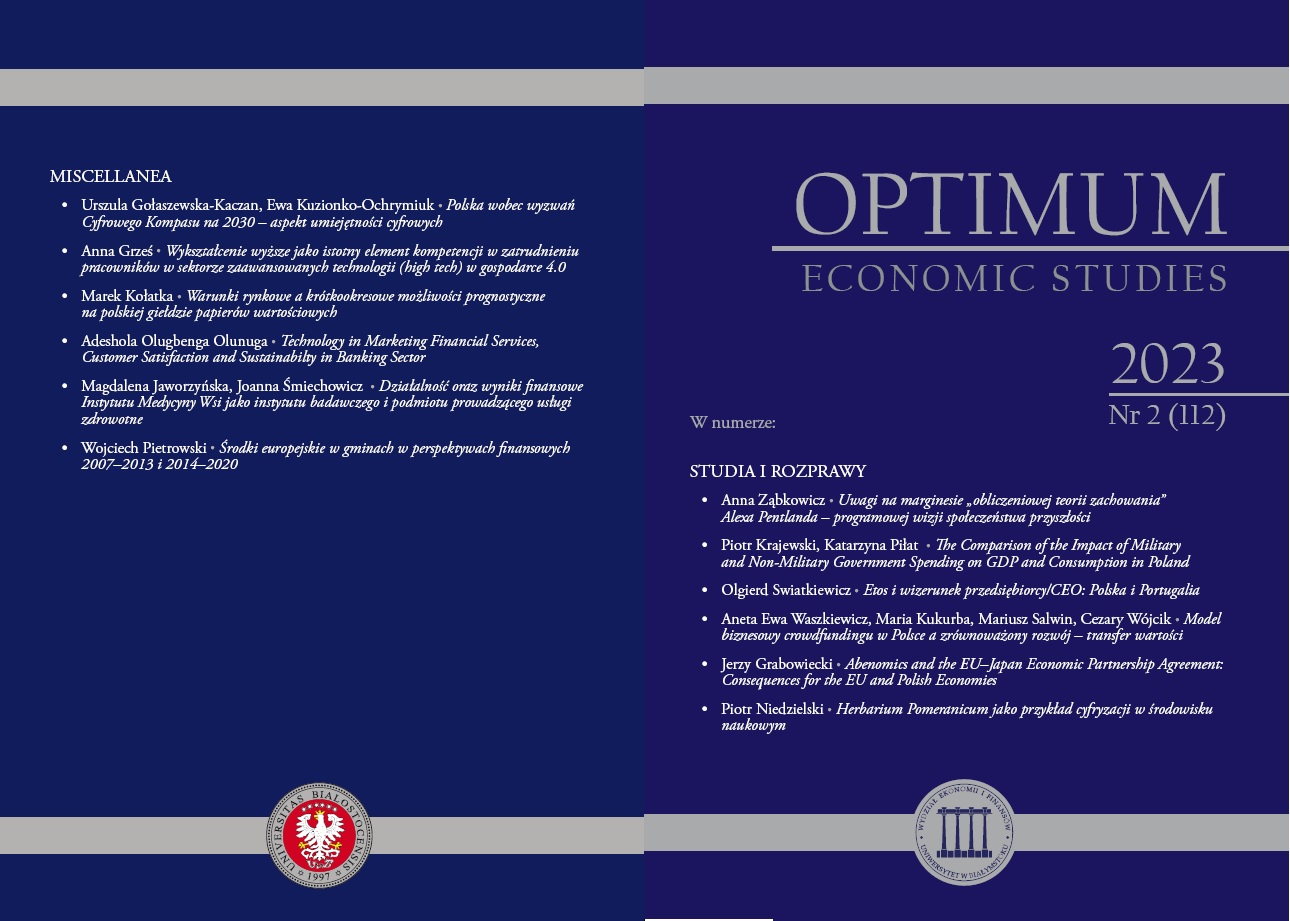POLSKA WOBEC WYZWAŃ CYFROWEGO KOMPASU NA 2030 ROK –
ASPEKT UMIEJĘTNOŚCI CYFROWYCH
POLAND IN THE FACE OF THE CHALLENGES OF THE DIGITAL COMPASS
FOR 2030 – THE ASPECT OF DIGITAL SKILLS
Author(s): URSZULA GOŁASZEWSKA‑KACZAN, EWA KUZIONKO‑OCHRYMIUKSubject(s): Social development, ICT Information and Communications Technologies
Published by: Wydawnictwo Uniwersytetu w Białymstoku
Keywords: digital society; digital competences;
Summary/Abstract: Purpose – An attempt to assess the level of digital skills of the Polish society in rela‑tion to the assumptions adopted by the European Commission in 2021 in the document‘Digital Compass 2030’. It was agreed at the EU forum that by 2030, at least 80% of thepopulation in the EU countries will have basic digital skills, and the number of specialistsin the field of ICT will be 20 million, with a greater gender balance (within ICT ‑relatedprofessions). These are very ambitious goals that should also be achieved by Poland. Inview of the above, the authors decided that it is necessary to define what the startingpoint for the implementation of the above ‑mentioned tasks is, and thus how the currentsituation in our country is shaped in terms of the indicated areas.Research method – The study analyzes data from DESI (Digical Economy and So‑ciety Index) reports and Eurostat reports, and uses the results of selected studies on theanalyzed issues.Conclusions – The analysis showed that the achievement of the goals set by the Euro‑pean Commission will be a great challenge for the country. Already at the starting point,i.e. in 2021, Poland is far behind compared to other EU countries. The level of digitalskills of the Polish society is one of the lowest among the EU countries. Poland also hastoo few ICT specialists, with a large gender imbalance (in favor of men).Originality / value / implications / recommendations – The article showed that Polishsociety has too low a level of digital skills to take full advantage of the facilities relatedto the development of the digital economy. In this situation, it seems necessary to takedecisive actions addressed to groups with different levels of digital skills, with particularemphasis on actions for digital inclusion, and to place particular emphasis on the furtherdevelopment of education for specialists in the field of ICT.
Journal: Optimum. Economic Studies
- Issue Year: 112/2023
- Issue No: 2
- Page Range: 131-145
- Page Count: 15
- Language: Polish

